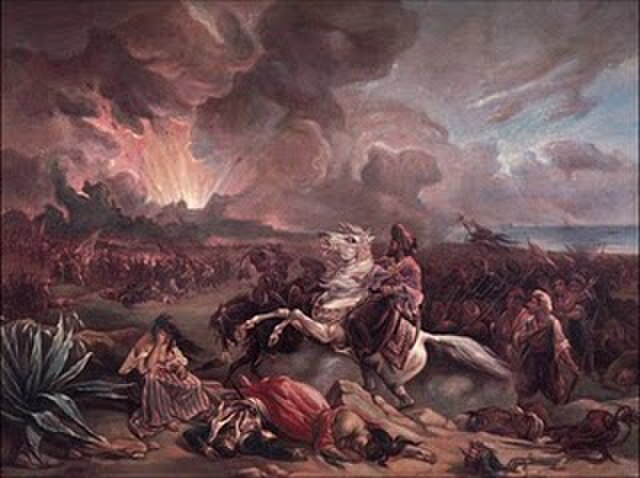Siege of Al-Karak was a 17-day siege imposed by Ibrahim Pasha of Egypt on the Transjordanian town of Al-Karak in 1834. The Pasha laid the siege on the town in pursuit of Qasim al-Ahmad, the leader of the Peasants' revolt in Palestine, who had fled from Nablus to take shelter in Al-Karak.
Kerak Castle
Ibrahim Pasha was an Egyptian general and politician; he was the commander of both the Egyptian and Ottoman armies and the eldest son of Muhammad Ali, the Wāli and unrecognized Khedive of Egypt and Sudan. He served as a general in the Egyptian army that his father established during his reign, taking his first command of Egyptian forces when he was merely a teenager. In the final year of his life, he succeeded his still-living father as ruler of Egypt and Sudan, owing to the latter's ill health. His rule also extended over the other dominions that his father had brought under Egyptian rule, namely Syria, Hejaz, Morea, Thasos, and Crete. Ibrahim pre-deceased his father, dying 10 November 1848, only four months after acceding to the throne. Upon his father's death the following year, the Egyptian throne passed to Ibrahim's nephew, Abbas.
Portrait by Charles-Philippe Larivière c. 1846
Ibrahim Pasha attacks Missolonghi in the year 1826, (by Giuseppe Pietro Mazzola).
Ibrahim Pasha, with father Muhammad Ali Pasha and Colonel Sève (Suleiman Pasha, right).




